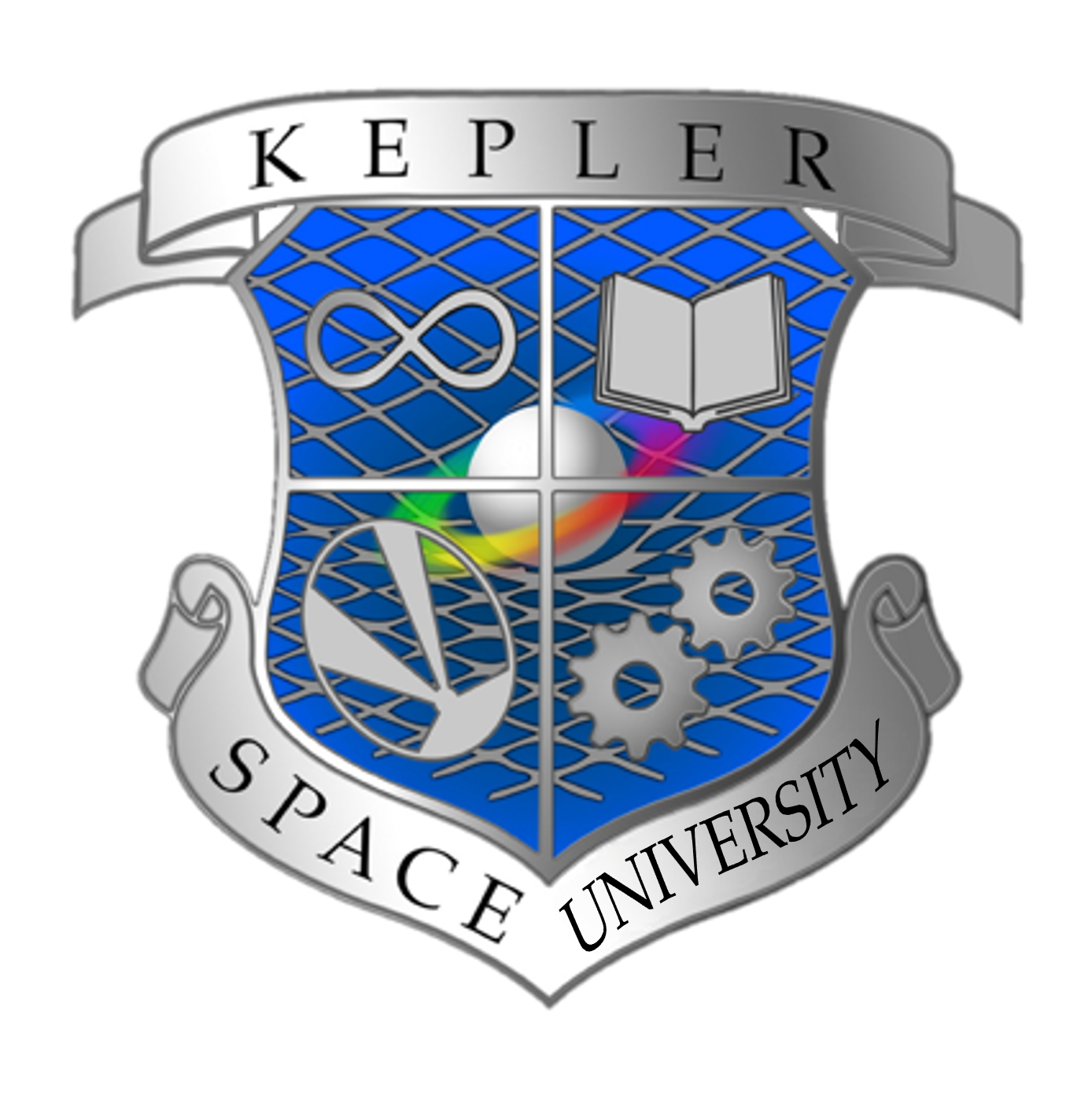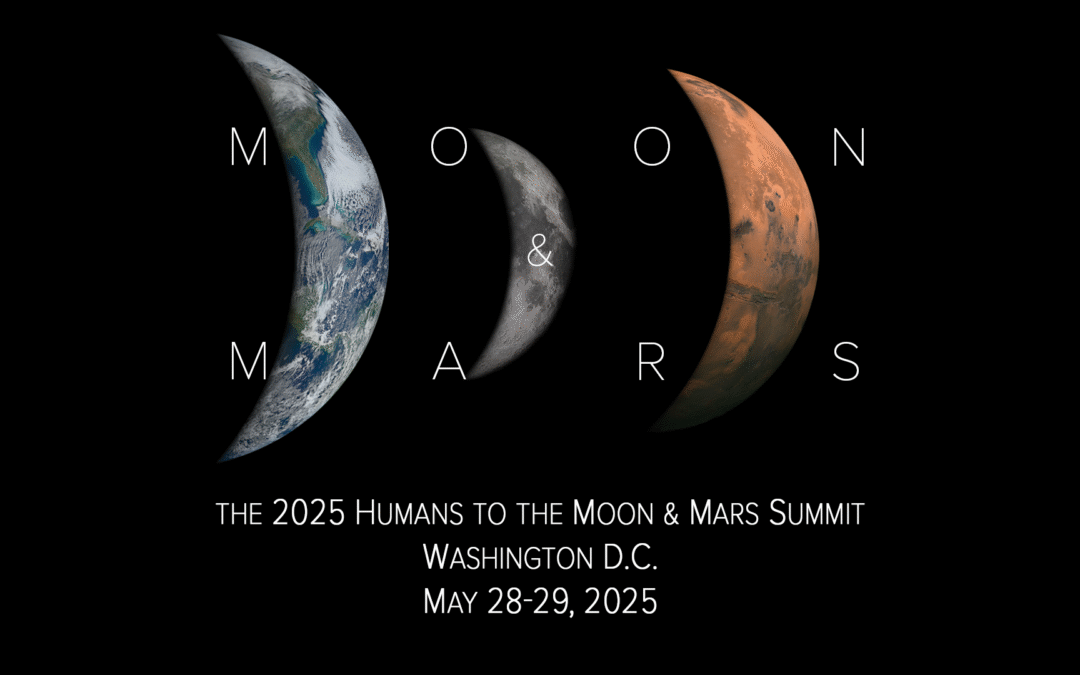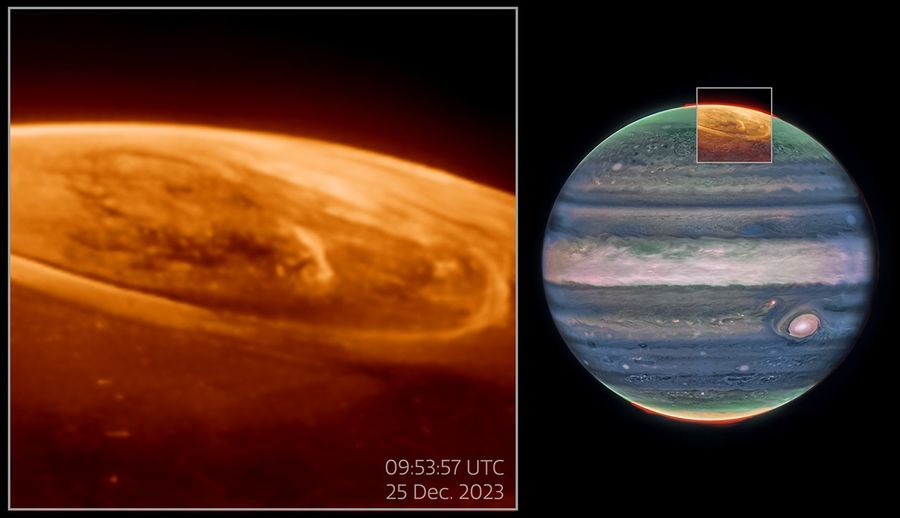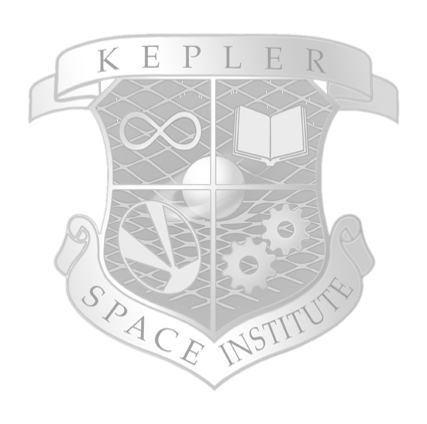Master of Science – Planetary Science
Home > Graduate Admissions > Space Programs > Masters > Planetary Science
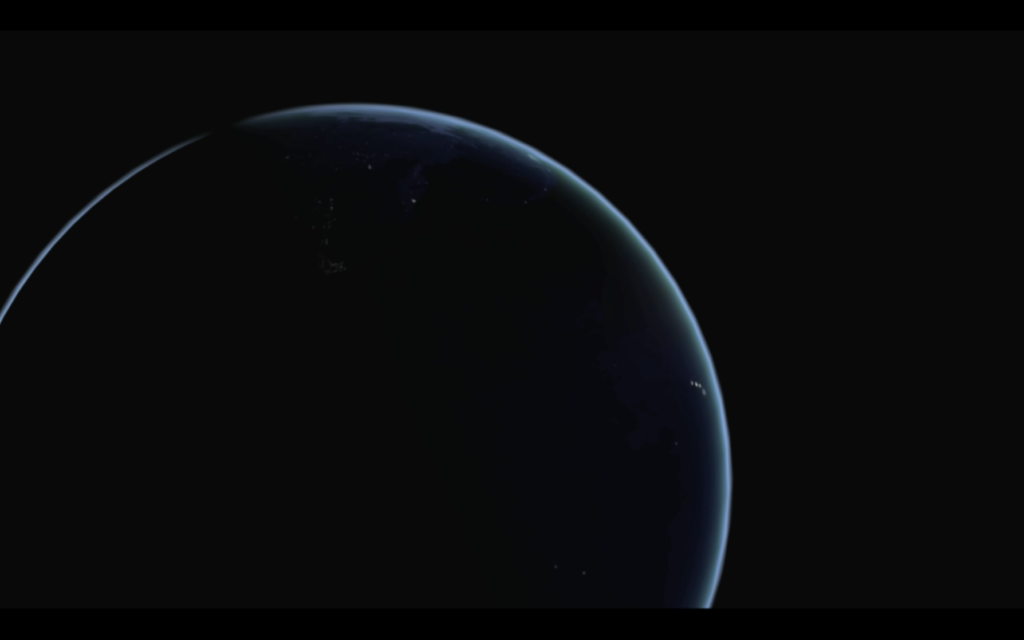
Planetary Science
3639 Cortez Rd. W, Suite 218, Bradenton, FL, 34210
941-417-0817
info@ksiedu.org
Degree:
Masters
Delivery:
Online
Application Fee:
$150.00
Terms of Enrollment
Fall Term (September)
Spring Term (January)
Summer Term (May)
Application Requirements
- A Bachelor’s Degree from a college or university accredited by the appropriate regional association with a minimum grade point average of 2.5 on a 4.0 scale or equivalent work experience in professional academic and/or government or private industry positions and achievements. Each applicant’s specific experience will be evaluated by the KSI Admissions Committee.
- Official transcripts from all previous universities or colleges attended or proof of work equivalent
- Three completed recommendation letters, Completion of application, and Application fee
Standardized Tests
- A Graduate Record Examination (GRE) revised General Test score or a Miller’s Analogy Test(MAT) score at or above the 50th percentile. The GRE or MAT requirement will be waived if an applicant has completed a Master’s degree or twelve or more credits of post- baccalaureate upper division or graduate coursework with a minimum grade point average of 3.0 on a 4.0 scale.
Special Instructions
Additionally, all international applicants whose native language is not English are required to take the Test of English as a Foreign Language (TOEFL) and submit a combined score of 550 or better (new scoring of 213 or better) or the Internet based test scoring of 80 or better. International transcripts are required to be translated if the grading and evaluation system used differs from those used by the United States education system. Official translation and a course- by-course evaluation from all prior institutions and grade-point average computation must be provided to the Office of Admissions. Please use one of the following services for evaluation.
World Educational Services 22 Prince St.
PMB 101
New York, NY 10012
Josef Silny & Associates
7101 SW 102 Ave.
Miami, FL 33173
KSI reserves the right to deny admissions to any prospective student for any reason/cause as determined by KSI. In the event of a denial of a request for admission a student may appeal to the admissions committee.
Tuition & Fees
Application Fee (one-time, nonrefundable) $150 Library Fee (each semester) $150
All Graduate Certificate Programs ($2,000/course) $8,000
All Master of Science Programs ($2,000/course) $24,000
Graduate Co-Op Program ($600 per semester for $1,800 maximum 3 terms for M.S. and maximum 1 term for
Graduate Certificates, non-refundable)
Graduation Fee Digital Graduate Certificate/Degree $100 only (one-time, non-refundable)
Graduation Fee Digital and Hardbound Graduate $250 Certificate/Degree (one-time, non-refundable)
The University reserves the right to adjust the above expenses at the beginning of each term.
Financial Support
Applicants to Kepler have access to a variety of funding options, including merit-based (i.e. based on your academic performance) and need-based (i.e. based on your financial situation) opportunities. View financial support opportunities.
M.S. in Planetary Science
The Master of Science (M.S.) Degree is an interdisciplinary program providing opportunities for those interested in advancing the development of Human Space Exploration and Space Settlements. The M.S. Program features coursework, research training, and collaborations with faculty in a research-led culture emphasizing rigor, creativity, and innovation. Students will join industry leaders to help guide the sustainable development of Space, and with the support of commercial and international partners will conduct impactful research in space-related fields to enable human expansion from Earth to Space.
The M.S. in Planetary Science program guides students through the physics of planetary and space environments, including planetary surfaces and sub-surfaces, atmospheres and magnetospheres for planets within our solar system and extrasolar planets. The program offers students the opportunity to investigate the formation of the solar system and other planetary systems by examining the physical and chemical processes that shape planets and celestial bodies. Students will gain an understanding of planetary systems, solar-system bodies, and their individual and collective evolutionary histories.
To successfully complete the program and earn the Master of Science Degree, students must fulfill all credit hour requirements, maintain a minimum GPA (as specified by the program), successfully complete the project, report, and/or thesis, and meet any additional criteria set by the university or department.
Core Courses for Human Expansion FROM EARTH TO SPACE
- ISS 500: Research Ethics – This course acquaints students to the ethical and philosophical issues raised by involving humans in research. Topics covered in include ethical theory and principles, informed consent for research participation, just selection of research subjects, functions of review boards and ethical aspects of study design, privacy and confidentiality. Students will be able to analyze research protocols and develop ability to engage in critical and self-reflective discussion of theoretical and practical problems in research ethics and the various solutions proposed.
- ISS 501: Graduate Seminar (3 credits) Presentations and discussions of research and developing technologies in current topics in the space settlement sciences by faculty members, guest experts, and students.
- ISS 510: Topics in Human Factors (3 credits) This course surveys the impact of human factors on crewed missions, challenges of continuous operational support for long-duration spaceflight, and approaches for analysis and interpretation of human factors data. Students will assess the participation of humans in space exploration and the abilities to perform physically and psychologically for extended periods in harsh environments, with unique gravitation and radiation characteristics. Human factors and human performance issues in general applications will be explored, topics may include: cognitive engineering and human-centered design principles applicable to life-critical systems, addressing human-centered automation, human workload, cognitive modeling, situational awareness, risk taking and applied user experience design and evaluation.
- ISS 520: Living and Working in Space (3 credits) This course introduces students to the fundamental principles of systems engineering and their particular application to the development of space systems to sustains humans living and working in space. Student will be introduced to the key elements comprising space systems across the mission design life cycle, from launch to in-space operations. Topics may include: fundamentals on astrodynamics, requirements analysis, trade studies, concept definition, interface definition, system synthesis, and engineering design, power systems, communications, command and data handling, thermal management, attitude control, mechanical configuration, structures, as well as techniques and analysis methods for remote sensing applications, risk assessment and mitigation planning. Students will be asked to explore, in depth, various advanced areas of space systems engineering challenges and share information with each other in online discussions.
- ISS 530: Special Studies in Space Architecture (3 credits) Through individual and/or group research projects, with guidance from faculty advisor(s), students will have an opportunity to advance original research work and developing technologies in special studies in space architecture. This course emphasizes investigating new territories of inquiry, including contributions to the knowledgebase of their chosen discipline, as well as development of an overall research framework to define aspects of that discipline related to space applications. Research programs should focus on theoretical and experimental positions drawn from the respective areas to enable contributions towards human space settlement. Skills development integrated throughout the course elements will emphasize writing, teamwork, the collaborative nature of the field, engineering tools used in space systems engineering, and data management and analysis.
- ISS 540: Special Studies in Space Philosophy (3 credits) Through individual and/or group research projects, with guidance from faculty advisor(s), students will have an opportunity to advance original research work and developing technologies in special studies in space philosophy. This course emphasizes investigating new territories of inquiry, including contributions to the knowledgebase of their chosen discipline, as well as development of an overall research framework to define aspects of that discipline related to space applications. Research programs should focus on theoretical and experimental positions drawn from the respective areas to enable contributions towards human space settlement. Skills development integrated throughout the course elements will emphasize writing, teamwork, the collaborative nature of the field, engineering tools used in space systems engineering, and data management and analysis.
- ISS 550: Special Studies in Law, Policy, and Governance (3 credits) Through individual and/or group research projects, with guidance from faculty advisor(s), students will have an opportunity to advance original research work and developing technologies in special studies in space law, policy and governance. This course emphasizes investigating new territories of inquiry, including contributions to the knowledgebase of their chosen discipline, as well as development of an overall research framework to define aspects of that discipline related to space applications. Research programs should focus on theoretical and experimental positions drawn from the respective areas to enable contributions towards human space settlement. Skills development integrated throughout the course elements will emphasize writing, teamwork, the collaborative nature of the field, engineering tools used in space systems engineering, and data management and analysis.
- ISS 560: Special Topics in Human Space Settlement (3 credits) Various topics in Human Space Settlement are considered. They will vary depending upon recent developments in the field and upon the interests of the instructor. The topics to be included are announced at the time of the course offering.
PLS 500: Planetary Systems: Origins and Evolution (3 credits)
This course examines the fundamental concepts in the evolution of planets and planetary systems. Students will survey the chemical and physical processes important to the origin and evolution of planetary systems. Topics may include observations and properties of planet formation and star formation around other stars and in our own solar system, protoplanetary disks, planet formation, planetary system architecture, planetary differentiation, exoplanets, major planets, satellites, and small bodies, asteroids, comets, interior structural equations, energy generation processes, opacity, energy transport, radiation transport in stellar atmospheres, star formation, late stages of stellar evolution, stellar binaries and clusters, and dynamical evolution of planetary systems.
PLS 501: Models of the Universe (3 credits)
This course explores the fundamental components in the cosmos and the historical evolution of current scientific theories about the origins of the Universe. Students shall review various models including historical, expanding, and the cellular universes; investigate the formation of solar systems; lifecycles of stars; supernovae and creation of elements; the Milky Way; distances of stars and galaxies; parallel Universes; multiverse; bubble universe; baby universes; and the big rip and the big bang theory.
PLS 502: Scientific Computing I: Data and Algorithms (3 credits)
This course provides an introduction to the tools and techniques in scientific computing for space exploration. Students shall examine qualitative and quantitative methods for the design and analysis of computing algorithms. Specific topics may include observational and experimental studies, fundamental data structures, abstract data types, data mining, integration of satellite imagery with data from other sources, automata theory, filters, SLAM, optimization, and algorithm analysis and various types of algorithms (recursive, backtracking, divide and conquer, dynamic programming, greedy, branch and bound, brute force, and randomized).
PLS 503: Scientific Computing II: Simulations and Processes (3 credits)
This course examines applications of simulations and algorithms to understand the fundamental processes and phenomena in the Universe. Specific topics may include general theory of systems modelling; principles of discrete-event, continuous, and hybrid system modelling; Monte Carlo methods; evaluation of simulations and observations from telescopes and satellites; autonomous cosmic intelligence; recursive distinctioning processes; machine learning; measurements of galaxies and structures from galactic and extragalactic surveys; roles of dark matter and dark energy; influences of gravity; N-body simulations; and computing performances for large-scale scientific applications.
PLS 510: Planetary Atmospheres (3 credits)
This course examines the physical and chemical processes that govern the atmospheres of Earth and other planets. Students will gain insights into the principles governing the evolution, composition and retention of planetary atmospheres and the interplanetary environment. Topics include known properties and inferred histories of the planetary atmospheres, the neutral atmosphere, photochemical processes, diffusion dynamics and planetary ionospheres and magnetospheres, and the early evolution of habitable planets.
PLS 520: Topics in Astronomy and Astrophysics (3 credits)
This course provides an overview of current advances in planetary science, particularly science results from recent discoveries. Emphasis is on the application of basic physics to understanding of astronomical systems. Topics may include a broad overview of modern astronomy and astrophysics, with the focus based on current activities and discoveries.
PLS 545: Independent Study – Planetary Science (3 credits)
This course provides for the independent study of a current topic in planetary sciences designed to encourage students to conduct research. Students will carry out independent library research, explore experimental work, prepare a written report and make a presentation to other students in the course of the research plan and preliminary results. An independent study course is intended to foster initiative in students by supporting them to address their own learning needs related to their thesis research or research in general, and extends a student’s learning beyond the available prescribed and elective courses.
PLS 549: Research Project - Special Studies In Planetary Science (3 credits)
This special study option enables students to undertake specific projects in planetary sciences. The topic of the special study will be determined in consultation with a faculty member and the individual student. The project may be theoretical and/or experimental and can be selected from a range of topics related to the course as suggested by teaching staff, your employer or even focused on your own area of interest. Students are responsible for making appropriate arrangements with faculty member prior to registration for the course.
PLS 597: Thesis I (Planetary Science) (3 credits)
For M.S. Degree, Thesis-Based. Research studies in Planetary Science. Students will actively engage in the research process, write the thesis and be examined on the thesis. The research may be on any topic, subject to approval and availability of faculty supervision.
PLS 598: Thesis II (Planetary Science) (3 credits)
For M.S. Degree, Thesis-Based. Research studies in Planetary Science. Students will actively engage in the research process, write the thesis and be examined on the thesis. The research may be on any topic, subject to approval and availability of faculty supervision. Prerequisite: PLS 597
